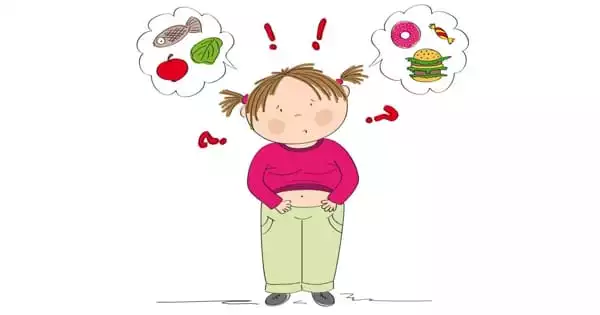Parents should not make dietary modifications for their children based entirely on their impressions of their child’s obesity. Every preschooler has a unique body shape and growth trend. Obesity in children is difficult to assess because youngsters grow in unpredictable spurts. Only a health care professional should perform so, using the child’s height and weight in relation to his previous growth history.
Penn State University researchers discovered that children who had favorable, early contacts with their caregivers – defined by warmth, attentiveness, and a stimulating home environment – had a lower risk of childhood obesity.
“A lot of the conversation on childhood obesity and associated health hazards centers on identifying and evaluating risk exposure,” said Brandi Rollins, assistant research professor of biobehavioral health. “In our analysis, we used a strength-based approach. We discovered that early in a child’s life, a supportive family and environment may override some of the cumulative risk factors that children can face.”
The study, titled “Family Psychosocial Assets, Child Behavioral Regulation, and Obesity,” was published in the journal Pediatrics recently. Rollins and Lori Francis, associate professor of biobehavioral health, examined data from over 1,000 mother-child pairs and discovered that early exposure to family psychosocial assets, such as a quality home environment, emotional warmth from the mother, and a child’s ability to self-regulate, reduced the risk of developing childhood obesity.
A lot of the conversation on childhood obesity and associated health hazards centers on identifying and evaluating risk exposure. We discovered that early in a child’s life, a supportive family and environment may override some of the cumulative risk factors that children can face.
Brandi Rollins
These variables were protective even when children encountered familial hazards for obesity, such as poverty, mother depression, or living in a single-parent household.
“Parenting research has demonstrated that these forms of family assets influence children’s conduct, academic success, profession, and, not surprisingly, health,” Rollins said. “Because the family assets we analyzed are not food or diet-specific, it is significant that these characteristics also protect against childhood obesity. It’s encouraging to know that by providing a caring, safe environment for youngsters, we can lower their chances of becoming obese.”
Severe obesity
Obesity is defined in children when their body mass indices (BMIs) are higher than 95 percent of other children their age and gender. The BMIs of children who exceed the obese threshold, on the other hand, vary greatly. Children with a BMI that is 20% greater than the obesity criteria are regarded to be very obese.
The researchers discovered that children with early-onset severe obesity faced no higher levels of familial risk than children who were not obese. Children with extreme obesity, on the other hand, had fewer family assets than children who were either not obese or had moderate levels of obesity. More research is required to determine which factors contribute to the development of extreme obesity and which factors mitigate the risk.

“While the data on severe obesity may appear disheartening, they do provide some optimism,” Rollins said. “Some risk variables, like as household poverty, might be extremely difficult to modify. Assets, on the other hand, may be simpler to construct. People can learn to be responsive parents. It’s reassuring to know that parenting and family are important.”
What parents can do
This work is based on parenting and child development research. One of the family assets examined in the study is responsive parenting, which entails responding to children in a timely, sensitive, and age-appropriate manner based on the child’s presenting needs. Penn State’s Center for Juvenile Obesity Research is also investigating how attentive parenting can minimize the likelihood of childhood obesity.
This study focused on childhood obesity, however the researchers stated that by learning responsive-parenting practices, parents can improve various outcomes for their children. However, knowledge of responsive-parenting skills may not directly translate to implementation of those skills in the home.
“No one can read a vehicle booklet and then expect to drive,” Rollins remarked. “Driving is a skill that must be learned and practiced. The same may be said about responsive parenting. To assist families in developing psychosocial assets, such as responsive parenting and a structured home environment, public health officials, doctors, and researchers must work together “She went on. “This has the potential to reduce childhood obesity rates as well as other significant quality-of-life outcomes.”
Most young children’s bodies are still growing and developing, therefore losing weight is not a good idea. Overweight children should not be put on a diet unless supervised by a professional for medical reasons. A restricted diet may not provide enough energy and minerals for appropriate growth and development. The goal for most very young children should be to retain their current weight while they grow normally in height.
Healthy eating habits, frequent physical activity, and reduced sedentary behavior are the most significant techniques for reducing obesity (such as watching television and videotapes, and playing computer games). These preventative measures are part of a healthy lifestyle that should be instilled in children from an early age.
















